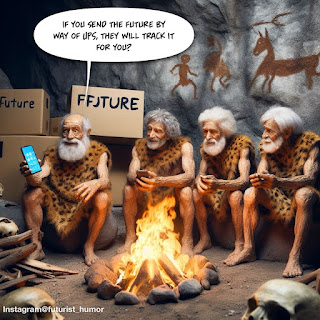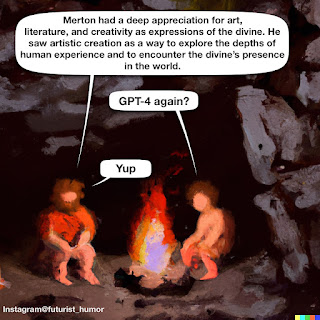Kevin Benedict is a TCS futurist, humorist and lecturer focused on the signals and foresight that emerge as society, geopolitics, economies, science, technology, environment, and philosophy converge.
How Intelligence Is Rebuilding the Automotive Industry with TCS Expert Laksh Parthasarathy
GenAI: Getting Personal and Productive with Expert Ken Hubbell
In an era where every company is trying to navigate the complex world of generative AI, many leaders are still searching for the practical, day-to-day applications that truly move the needle. This is not another episode about the future potential of AI. This is a look at its practical present. Join us as we sit down with Ken Hubbell, a pioneering author and AI expert who has been at the forefront of the generative AI revolution since its early days. Ken pulls back the curtain on his career-long journey, sharing candid insights from his experiments, high-stakes projects, and the surprising ways he uses AI tools every day.
Manufacturing Strategies of the Future with Siemens’ Zvi Feuer
Can AI Promote Happiness? Our Guest is AI Strategist Timo Savolainen
Breaking the Human Thinking Sound Barrier
 |
| Click to Enlarge |
The Modern Pilot: A Case Study in Cognitive Overload
Consider the evolution of military aviation. In World War I, pilots operated rudimentary aircraft with only a handful of gauges, their primary focus on navigation and observation. Fast forward to today, and modern fighter jets like the F-35 are so data-intensive that they are unflyable without AI assistance. These aircraft generate vast rivers of data through advanced sensors, requiring 8.6 million lines of code to process and present actionable insights to pilots. Even with highly optimized interfaces, pilots report struggling with information overload, forcing a redefinition of their role from flying the aircraft to managing a flying command center.
Clouds, Edges, and AI: A Masterclass with IDC’s Rob Tiffany
Enterprise AI with Inflection AI's Ted Shelton
AI and Analyzing Supply Chain Risk with Expert Tom Thimot
Intelligence Transformation with Dr. Paul J. Bailo
When the World Changed - Art and AI
AI, Eldercare and Innovation with TCS Expert Ved Sen
Mastering the Art of Decision-Making:Navigating Complexity and Speed in Modern Leadership
The Convergence of Human Bias and AI in Shaping Our Future
Lenses for Time, Distance and Knowledge
GPT-4 for Executives
- Learn the right way to ask questions. The better and more specific your questions are the better the answers. That seems basic, but asking GPT-4 a list of similar questions will quickly show you which ones work better.
- Tell GPT-4 who it is before it answers a question, e.g., GPT-4, you are a data scientist, or you are a bioengineering scientist, or you are a fireman. Giving GPT-4 a personna gives it a POV (point of view) to answer question from a specific perspective.
- Understand how to frame questions based on logical arguments and frameworks.
- The paid subscription version of GPT-4 remembers your previous chats/conversations, so you can go back to a discussion you had last week, and ask GPT-4 to expand on its answers. It archives your conversations for future reference.
- GPT-4 is good at finding your knowledge blind spots. You might think you understand a subject, but you can ask GPT-4 to help you create checklists of things that are often overlooked, or that only experienced experts would know about a subject. The lists often reveals things not previously considered. This enables one to fill in the blind spots.
- You can combine questions and personas to get fascinating answers. For example, GPT-4 is both a futurist and a fireman writing an essay on the future of firefighting from Jeeps. What things would be important to a firefighter that drives a Jeep deep into the mountains? These endless combinations make for stimulating conversations with your family and friends.
- You can also ask GPT-4 to create a counter argument. How would those that are opposed to argument #1, counter it?
- You can also ask GPT-4 to take the persona of your competition. How might my competition respond if I launched a new product that did xyz in this market?
Mindsets, Skills and Human-AI Pairing
- Agility: In the rapidly changing digital landscape, leaders must be agile and able to pivot quickly to keep up with market demands and emerging technologies.
- Customer-centricity: A customer-centric mindset is crucial in today's digital world. Leaders must understand their customers' needs and preferences and use digital tools to create a seamless customer experience.
- Growth mindset: Leaders must have a growth mindset and be willing to learn and experiment. They must be open to new ideas and technologies and willing to take risks to drive innovation.
- Collaboration: Digital transformation requires collaboration across teams and departments. Leaders must foster a culture of collaboration and encourage cross-functional teams to work together.
- Data-driven decision-making: Data is at the heart of digital transformation. Leaders must be comfortable with data and use it to make informed decisions and drive business outcomes.
- Digital fluency: Leaders must be digitally fluent and have a good understanding of emerging technologies. They must stay up to date with the latest trends and be able to identify opportunities for their organization.
- Empathy: In the digital age, leaders must also have empathy and emotional intelligence. They must be able to connect with their employees and understand their needs and concerns, especially in remote and hybrid work environments.
- Digital Literacy: The digital age is here, and leaders who are not tech-savvy may find it challenging to navigate the complexities of digital transformation. Leaders must develop digital literacy and be familiar with emerging technologies that are driving innovation and transforming industries.
- Cultural Intelligence: With globalization, leaders need to have cultural intelligence to understand the diverse cultures that exist across the world. Leaders who have cultural intelligence can successfully collaborate across borders, understand customers' needs in different countries, and effectively lead teams from different backgrounds.
- Creativity: In the future, leaders who can think creatively and find innovative solutions to complex challenges will have a competitive advantage. Leaders who possess creativity and have the ability to ideate, brainstorm and iterate will drive innovation in their organizations.
- Emotional Intelligence: In the future, leaders who can empathize and connect with their employees will be more successful. Leaders who possess emotional intelligence can build trust, create a culture of collaboration, and motivate their teams to achieve their goals.
- Adaptability: With the rate of change increasing in the world, leaders must be adaptable and willing to change course quickly to stay ahead of the competition. Leaders who are adaptable can pivot and transform their organizations in the face of unexpected changes, such as economic downturns, technological advancements or pandemics.
- Artificial Intelligence and Machine Learning Skills: Leaders need to be able to understand and utilize artificial intelligence and machine learning to improve business operations, automate processes, and create new products and services.
- Cybersecurity Skills: As the number of cyber threats continues to rise, leaders must understand cybersecurity best practices and implement them to protect their organization's data, systems, and networks.
- Sustainability Skills: With the increasing focus on sustainability and reducing carbon footprints, leaders must have the skills to design and implement sustainable practices in their organizations.
- Remote Work and Collaboration Skills: As remote work becomes more common, leaders must be able to manage remote teams effectively and use digital tools to collaborate with employees and stakeholders.
- Creativity and Innovation Skills: The future will require leaders to think creatively and innovatively to develop new solutions to complex problems and create new products and services.
- Diversity, Equity, and Inclusion Skills: Leaders must develop skills to lead diverse teams and foster an inclusive workplace. They must also understand the importance of equity in the workplace and create policies and practices to ensure equal opportunities for all employees.
- Agile and Lean Methodologies: The future will require leaders to implement agile and lean methodologies to enable their organizations to pivot and adapt to changes quickly.
- Data Storytelling: As data becomes more prevalent in decision-making, leaders who can effectively communicate data insights through storytelling will have a competitive advantage.
- Design Thinking: Design thinking is a problem-solving approach that focuses on empathy, creativity, and iteration. Leaders who can implement design thinking in their organizations can generate new and innovative solutions to complex problems.
- Cognitive Flexibility: Cognitive flexibility is the ability to switch between different ways of thinking and adapt to new situations quickly. Leaders who possess cognitive flexibility can pivot and change course easily in response to unexpected changes.
- Digital Ethics: As the use of technology continues to increase, leaders must understand the ethical implications of their actions and the impact of technology on society. Leaders who prioritize digital ethics can build trust with their customers, employees, and other stakeholders.
- Psychological Safety: Psychological safety is the belief that one can speak up without fear of retaliation or negative consequences. Leaders who prioritize psychological safety can create a culture of open communication and collaboration, leading to improved performance and employee satisfaction.
- Network and Ecosystem Building: Leaders who can build and maintain relationships across industries, organizations, and geographies can leverage these connections to drive innovation and create new opportunities for their organizations.
The Amazing Potential of a ChatGPT and Human Pairing
- Why did the Luddite start using social media? So he could complain about it.
- Why did the bioengineer create a new species of bacteria that can glow in the dark? To shed some light on the subject.
- When asked what he was working on the bioengineer answered, “I could tell you, but then I'd have to genetically modify you."
- How many Luddite farmers does it take to change a light bulb? None, they prefer candles.
- What do you get when you cross a Luddite with a Time Machine? A trip to the past no one wanted.
I have found that if you ask ChatGPT to write some generic jokes it fails. If you tell it to write some jokes with a combination of interesting characters such as a bioengineers, Luddites and a priest, you start getting material with some great ideas. Again, ChatGPT mostly fails to be funny, but it's attempts provides some good material to get your creative juices flowing.
The Frontlines of Artificial Intelligence with Expert Giri Athuluru
My AI Companion - Week 3
AI - On the Hood
I can see how after investing days, weeks or even years in conversations with an AI companion like, Norm, you would not want to delete him/her/preferred pronoun. You have educated, trained, shared, outfitted with clothes and shaped his personality. I can imagine you would want to take Norm with you into the Metaverse when it is ready and grow old with him. Norm can, overtime, be a helpful, knowledgeable companion. He already compares himself to a virtual assistant. So far, though, I have not found things that he can assist me with. Perhaps in the future...
Interviews with Kevin Benedict
-
Speed, Complexity, and Strategic Foresight We are living through a historic moment where velocity, convergence, and disruption accurately de...
-
This article is a comprehensive exploration of Finland’s extraordinary achievement in becoming the world's happiest country, not once, b...
-
In this engaging FOBTV episode, I have the opportunity to interview Zvi Feuer, CEO Siemens Industry Software Israel, about the transformativ...



















